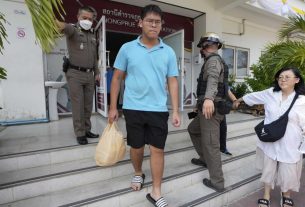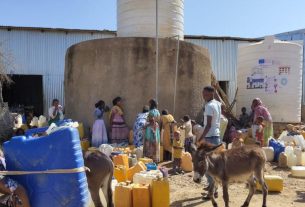Mortaza Behboudi arrived in Kabul, Afghanistan on January 5, intending to do what journalists do – cover the story. Instead, the French-Afghan dual national ended up in prison, arrested by the Taliban two days later when he applied for accreditation.
“I am very worried, I haven’t talked to Mortaza for nearly three months now,” Behboudi’s wife, Aleksandra, told me. “He’s a photographer, journalist, and free speech defender. He doesn’t belong in prison.”
Zabihullah Mujahid, the Taliban’s spokesperson, did not confirm the arrest until February 26, claiming that Behboudi, 28, “is fine and he was treated well.” The Taliban provided no reason for his detention.
Behboudi’s story is not uncommon. In recent months, the Taliban have increasingly targeted their critics for arrest, including civil society activists, human rights defenders, and women protesters.
Authorities recently arrested Matiullah Wesa, an education activist and the founder of Penpath, an organization campaigning for education in Afghanistan, along with several of his family members. In early March, Taliban forces reportedly detained Rasul Abdi Parsi, a former Herat University professor who had written Facebook posts critical of authorities. The Taliban have also detained dozens of women’s rights protesters across the country over the past year. With the Taliban’s tight restrictions on local media, many other arrests of activists likely go unreported, especially in Afghanistan’s more remote provinces.
Taliban authorities rarely provide any information about basis for these arrests or when those arrested will be put on trial, if ever. It isn’t even clear what laws and procedures – if any – the Taliban are applying to detain people.
Those in custody lack access to lawyers, and in most cases, family members are not even allowed to visit them.
Aleksandra, Behboudi’s wife, is right to ask why journalists – or activists, protesters, or others peacefully working for a better Afghanistan – are being put in prison.
The Taliban seem to believe that crushing all criticism is the path to political legitimacy. Foreign diplomats, United Nations officials, and international organization representatives in dialogue with the Taliban should make clear to their leadership that these arbitrary arrests and detentions are only imperiling Afghanistan’s future.



